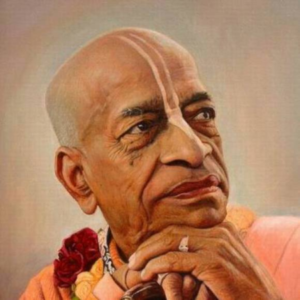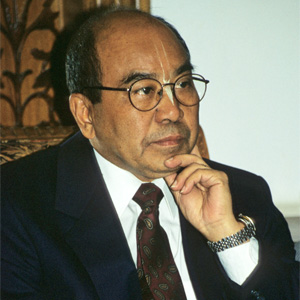Our mission
Science and religion are two of the most influential streams of thought in our world today. Spiriton-bi.com is an informative and interactive website dedicated to facilitating communication between scientific and religious domains on a wide range of issues that affect human beings and other living beings individually and collectively. It explores foundational questions related to the nature of life and its origin, the nature of humanity, challenges related to the body, mind, and society at large, as well as other philosophical and ethical concerns. The articles and resources in this website aim to provide readers with diverse information and tools to engage with these issues in an informed, broad-minded and comprehensive way. This inclusive approach will have profound significance for broadening our understanding of the interaction between science and religion.
One of the primary objectives of this website is to promote a paradigm in which the epistemological methods of India’s Vedanta tradition complements modern scientific knowledge. Beyond the focus on Vedanta and science, the website also promotes scientific, philosophical, and religious dialogues among scientists, scholars and theologians of the world in a non-sectarian manner. These dialogues cover various common conceptual grounds, promote a better understanding amongst all people and address issues that emerge due to technological developments and scientific discoveries. We invite you to browse our website and subscribe to our email updates.
Visionaries

Srila A.C. Bhaktivedanta Swami Prabhupada
The pressing need for spiritual knowledge from India’s Vedanta philosophy to be integrated with modern science was envisioned by Srila A.C. Bhaktivedanta Swami Prabhupada (1896-1977). Srila Prabhupada was very concerned about how science and technology was directing humanity in the modern world towards a purely materialistic worldview. He challenged the view that the material scientific process is the sole epistemological criterion and that matter is the only ontological state for comprehending the nature of reality. In 1968, when he was addressing students of the Massachusetts Institute of Technology (M.I.T.), Boston, he said, “You are all students of technology. This Krishna consciousness movement is also another technology… Unfortunately, there is no department for distributing knowledge of the science of the soul. But, that is the most important thing.” Srila Prabhupada critiqued the modern reductionist framework that tries to explain life solely in terms of atoms and molecules, and thereby denied the spiritual nature of living beings, as well as the Supreme Being. He saw this materialistic worldview to be root cause of problems in the world such as the exploitation of humans, animals, and nature. Drawing from the conclusions of the teachings of Sri Caitanya (1486-1533), Srila Prabhupada introduced the Bhagavata paradigm which teaches that the living being or life is beyond molecules, and the fundamental property of life is consciousness and consciousness is nonmaterial.
He was hopeful that in the future, scientists worldwide would in their own way examine this alternate paradigm and try to prove the existence of Supreme Life or God scientifically and philosophically. Thus he wrote in his commentary to the Srimad-Bhagavatam, verse 1.5.22, “Human intellect is developed for advancement of learning in art, science, philosophy, physics, chemistry, psychology, economics, politics, etc. By culture of such knowledge the human society can attain perfection of life. This perfection of life culminates in the realization of the Supreme Being, Visnu… When advancement of knowledge is applied in the service of the Lord, the whole process becomes absolute… Therefore, all the sages and devotees of the Lord have recommended that the subject matter of art, science, philosophy, physics, chemistry, psychology and all other branches of knowledge should be wholly and solely applied in the service of the Lord.” Srila Prabhupada’s deep reflections on the subject matter will serve as seeds for the development of a “new science.”
It was with these objectives that Srila Prabhupada founded the Bhaktivedanta Institute in 1974, with a small group of scientists, and established Dr. T.D. Singh as its first international director. Srila Prabhupada authored over 70 volumes of books on the Vaisnava Vedanta, which are highly respected by scholars for their authority, depth, and clarity. Inspired by Srila Prabhupada, the various branches of the Bhaktivedanta Institute around the world share a common vision to encourage humanity to inquire about the nature of the Absolute Truth, the nature of reality, and the nature of our existence, so as to live in harmony with developments of science and technology.

Dr. T.D. Singh (Srila Bhaktisvarupa Damodara Swami)
Dr. T. D. Singh (1937-2006), also known as Srila Bhaktisvarupa Damodara Swami is the founding director of the Bhaktivedanta Institute. Dr. Singh was born in the ancient state of Manipur, located in the Himalayan foothills of Northeastern India. After receiving a scholarship from the Indian government for his excellent academic results, he obtained his PhD in Physical Organic Chemistry, from the University of California, Irvine, USA in 1974. He contributed many papers in the Journal of the American Chemical Society and the Journal of Organic Chemistry in the field of fast proton transfer kinetics in model biological systems using stopped-flow technique and NMR spectroscopy.
He was a pioneer in promoting science-religion dialogue in the twentieth century and is renowned for his ability to synthesize the apparently different paradigms of epistemology in empirical Western based science and Eastern philosophy. He identified the cause of many of the problems in the world today such as terrorism, environmental degradation, and social and religious conflict to be due to a lack of understanding between the fields of empirical science and religion.
To this end, as the International Director of the Bhaktivedanta Institute, he wrote more than thirty books, delivered hundreds of talks, and organized numerous international conferences on topics related to the science and spirituality nexus. His tireless efforts were revolutionary and brought together some of the best minds in the world – Nobel Laureates, scientists, spiritualists, and world leaders – to a common platform of constructive dialogue and action for a more peaceful world.
While traveling extensively around the world, he built bridges between communities, cultures and ideologies. In addition to his contribution to the field of science and spirituality, Dr. Singh was a key member of the United Religions Initiative (URI) which is under the auspices of the United Nations. Through the URI, Dr. Singh played a very active role in getting leaders of the world’s religions to work towards greater understanding of one another’s traditions. Referring to this work and his background as a chemist, he used to say that he was “performing the chemistry of culture.” He encouraged those he met to cultivate the human spirit of inquiry, mutual respect, harmony and peace. Primarily, he emphasized the need for a new paradigm of life beyond the mechanistic model of atoms and molecules, to include consciousness, meaning, and purpose. He coined and defined the term ‘spiriton’ in reference to the conscious energy which exists in all living beings, and which has not been described by material sciences. This website is inspired by and dedicated to him.
